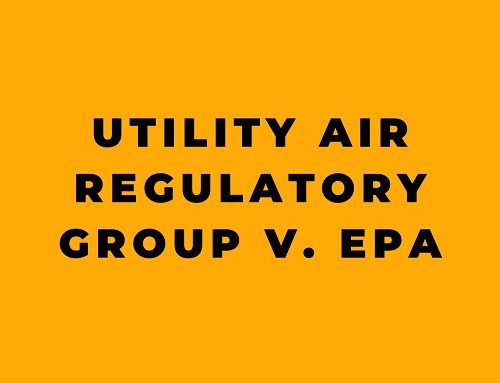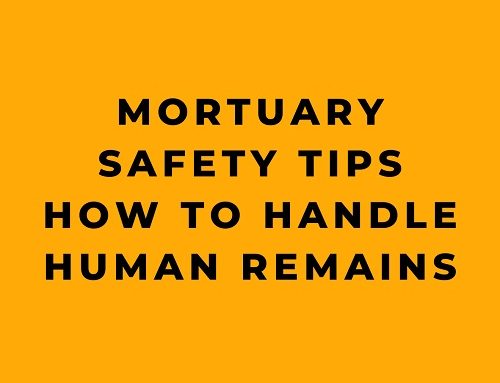Liquor stores play an important economic role in communities across the United States. They provide jobs, generate tax revenue, and offer products that many adults enjoy responsibly. However, selling alcohol also comes with challenges and regulations that store owners must follow to ensure safety and compliance. This article will provide an overview of the liquor store industry, examine key regulations, discuss safety best practices, and look at potential changes on the horizon.
Understanding Liquor Store Regulations
Operating a liquor store in the U.S. requires adhering to an array of regulations at both state and federal levels. Business owners must understand and comply with these rules to avoid facing penalties.
Licensing
The first requirement for running a liquor store is obtaining a state liquor license, which allows the retail sale of alcoholic beverages. License types and costs vary based on location and business size. For example, Texas offers nine different permits with fees ranging from $150 to $2500 annually. Obtaining a license requires submitting an application, paying fees, and undergoing inspections. Renewals may be necessary periodically or annually.
Age Restrictions
Liquor stores must verify customers are of legal age before selling them alcohol. In the U.S., the minimum age to purchase alcoholic beverages is 21 years old. Selling to underage individuals can result in fines or suspension of a store’s liquor license. To prevent illegal sales, stores train staff to check IDs and may utilize electronic age verification systems.
Hours and Days of Sale
States regulate when and how late liquor stores can sell alcohol. For example, New York mandates liquor stores close by midnight, while Nevada has no restrictions on hours of operation. Regulations also exist around selling alcohol on Sundays and election days. Staying aware of state and county laws is essential for compliance.
Labeling and Tax Requirements
The federal government also imposes regulations through the Alcohol and Tobacco Tax and Trade Bureau (TTB). These include rules related to proper labeling of alcoholic beverages, filing reports on inventory and sales, and paying excise taxes. Violations can lead to criminal fines and imprisonment.
Safety Measures in Liquor Stores
In addition to legal obligations, liquor stores must prioritize safety through measures like security systems, employee training, and storage protocols. Such precautions help prevent robberies, violence, fires, and other risks associated with selling alcohol.
Surveillance Systems
Most liquor stores invest in video monitoring to deter and document theft and other crimes. Positioning cameras inside and outside the store allows complete coverage. Promptly reporting footage of violations supports police investigations. High-quality systems act as visible deterrents to would-be offenders.
Employee Training
Well-trained staff are the first line of defense in handling unsafe situations that may arise at liquor stores. Topics to cover include checking IDs, spotting fake documentation, refusing sales to intoxicated customers, safely making night deposits, and properly using security systems.
Secure Product Storage
Keeping inventory stored securely helps prevent shoplifting and employee theft. Locked storerooms, cages around high value items, and alarms on bottles all limit access and visibility. Safely disposing of empty bottles also reduces the chance of illegal refilling.
The Role of Compliance in Liquor Stores
Given the highly regulated nature of their products, compliance is both a legal and ethical obligation for liquor store owners. Negligent operations jeopardize community safety and undermine public health efforts.
Avoiding Penalties
Failure to adhere to alcohol regulations exposes businesses to expensive fines, lost licenses, and criminal prosecution. Jail time is possible for refilling bottles or selling to minors. No owners can afford to ignore the rules governing their industry.
Preventing Abuse and Addiction
Liquor stores sit at the frontline of issues like underage drinking and alcoholism. Careless selling enables dangerous consumption levels that burden health services. Through diligent ID checking and staff training, stores assist communities by promoting responsible sale and use of alcohol.
Maintaining Social License
Ultimately, the privilege to operate depends on meeting legal requirements and public expectations. Flouting rules or behaving irresponsibly risks backlash and permanent closure. Upstanding liquor stores enhance neighborhoods rather than endanger them.
Case Studies: Consequences of Non-Compliance
When liquor outlets fail to take precautions or follow regulations, it threatens business operations, customers, and the surrounding community. Looking at real examples underscores the importance of compliance.
Selling to Minors in Wisconsin
In 2018, a liquor store in Wisconsin received a $10,500 fine for selling to underage informants without requesting identification during compliance checks. The same clerk had failed multiple previous checks. This case shows that selling alcohol to minors brings steep fines and increased scrutiny from regulators.
Fatal Shooting in Los Angeles
A Los Angeles liquor store became the site of a gang-related shooting in 2000 after inadequately controlling loitering and criminal behavior on premises over several years. The incident ultimately resulted in the death of an innocent toddler. It exemplifies the worst potential consequences of neglecting safety.
Reusing Bottles in Las Vegas
In 2006, federal agents busted an illegal vodka trafficking ring in Las Vegas. The perpetrators stole used liquor bottles out of recycling bins and trash cans and then refilled them with cheap alcohol to re-sell. The case demonstrates ignition for strictly disposing of empties.
Best Practices for Liquor Store Safety and Compliance
Liquor store owners should implement these proven policies and procedures for responsibly running outlets that meet legal and community expectations:
- Perform regular employee training on alcohol regulations and store protocols using TTB guidance
- Institute monthly compliance checks on verifying IDs and refusing sales to intoxicated customers
- Install comprehensive surveillance systems with at least 90 days of video storage
- Safely destroy empty bottles by breaking them to prevent illegal reuse
- Report any license violations, complaints, or threats immediately to responsible authorities
- Join local business groups and maintain open dialogue with neighborhood associations
- Post emergency numbers and taxi companies prominently to aid intoxicated or imperiled customers
- Support alcohol abuse education through partnerships, sponsorships, and community event presence
Nevada Liquor Store Laws
Nevada law defines a “retail liquor store” as an establishment where beers, wines and liquors are sold in original packages or by the drink to consumers. There are no restrictions on the hours or days that liquor stores can sell alcohol.
Licensing & Taxes
Liquor stores must obtain a retail liquor license from the county or city where they are located. License fees range from $75-$500 per year. Liquor stores must also pay excise taxes on the liquor they sell.
Purchasing Liquor
Liquor stores can only purchase liquor from Nevada-licensed liquor wholesalers. There are some exceptions that allow retailers to purchase directly from certain producers, like instructional wine-making facilities.
Employees
Liquor store employees who handle or sell alcohol must be at least 21 years old. There are exceptions for grocery and convenience stores to allow supervised 16-18 year olds to handle sealed alcohol containers.
Deliveries
A new law passed in 2021 allows liquor stores to deliver sealed liquor packages to consumers, if it originates from the liquor store premises during regular business hours. Deliveries must comply with regulations from the Department of Taxation.
Penalties
Selling or delivering to minors, violating licensing requirements, evading taxes, and other violations can result in misdemeanor citations, fines, and potential license suspensions or revocations for liquor stores.
Conclusion: The Future of Liquor Store Safety and Regulations
As societal views on alcohol evolve along with advancements in technology, liquor stores will continue adapting to meet emerging safety challenges while satisfying regulatory demands.
Potential technological innovation in age verification or ID scanning may help stores better prevent underage sales. However, it could also raise privacy concerns that spark legal debates.
The growth of alcohol delivery services through ridesharing apps and websites enables home drinking, testing the bounds of existing public safety infrastructure. Policymakers will likely try regulating third-party services.
Ongoing advocacy against the public health consequences of alcohol may ultimately lead to tighter restrictions on the density of liquor outlets, allowable signage or displays, and hours of operation. Such changes could provide new constraints for stores to respect.
Yet whatever the future shifts, liquor store compliance with safety and regulations will remain essential for conducting ethical business in communities where alcohol is sold and consumed. Owners who stay informed and diligent about standards can continue responsibly providing adult products to their customers.










